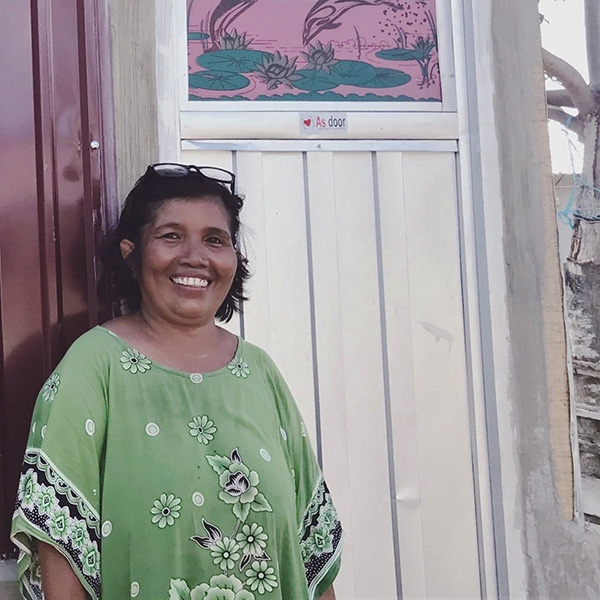Stories of Change

Nurila stands in front of her family's new bathroom.
The finishing touch on a transitional shelter: a new latrine
Nearly 25 million people in Indonesia do not have toilets to use. Instead, forests, fields, rivers, streams, ditches, canals and even streets become makeshift bathrooms. Not only is this an affront to dignity, but it also poses health risks.
Since the deadly earthquake in September 2018, many families in Central Sulawesi have joined this statistic. The disasters there left many families without access to proper toilets.
Since early 2019, the CWS team in Central Sulawesi has worked with hundreds of families to build transitional shelters. Nurila’s family was one of 228 that built transitional shelters early in this phase of our response. Of course Nurila was relieved to have a roof over her family’s heads. But something was missing. Her family didn’t have a latrine. She worried because there was a danger of snakes and animals in some areas. Instead, she would walk to the riverbank or oceanside because it was easy to wash up afterwards and there were bushes to hide behind. This made it a bit less humiliating, she told us.
Our team knew that Nurila’s concerns were common ones. We met with community members and determined that increasing access to toilets was an important priority. We teamed up with a local organization called INANTA to work with 97 families to build household latrines. These families, which includes Nurila’s, live in two communities.
Nurila’s family has completed construction on their latrine. She says, “We are glad to have our own toilet, so we no longer need to walk far to feel safe, especially at night.”
CWS continues supporting recovery work with families around Palu with a growing focus on cash transfers to families to they can build their own transitional shelters and toilets with CWS technical assistance, but with the dignity of a hand up and no more hand-outs. These are, of course, vital in early response action after a disaster. But sooner rather than later, families are always grateful for the chance to return to lives of self-directed recovery.
Watch a video about latrine building in Central Sulawesi here.
